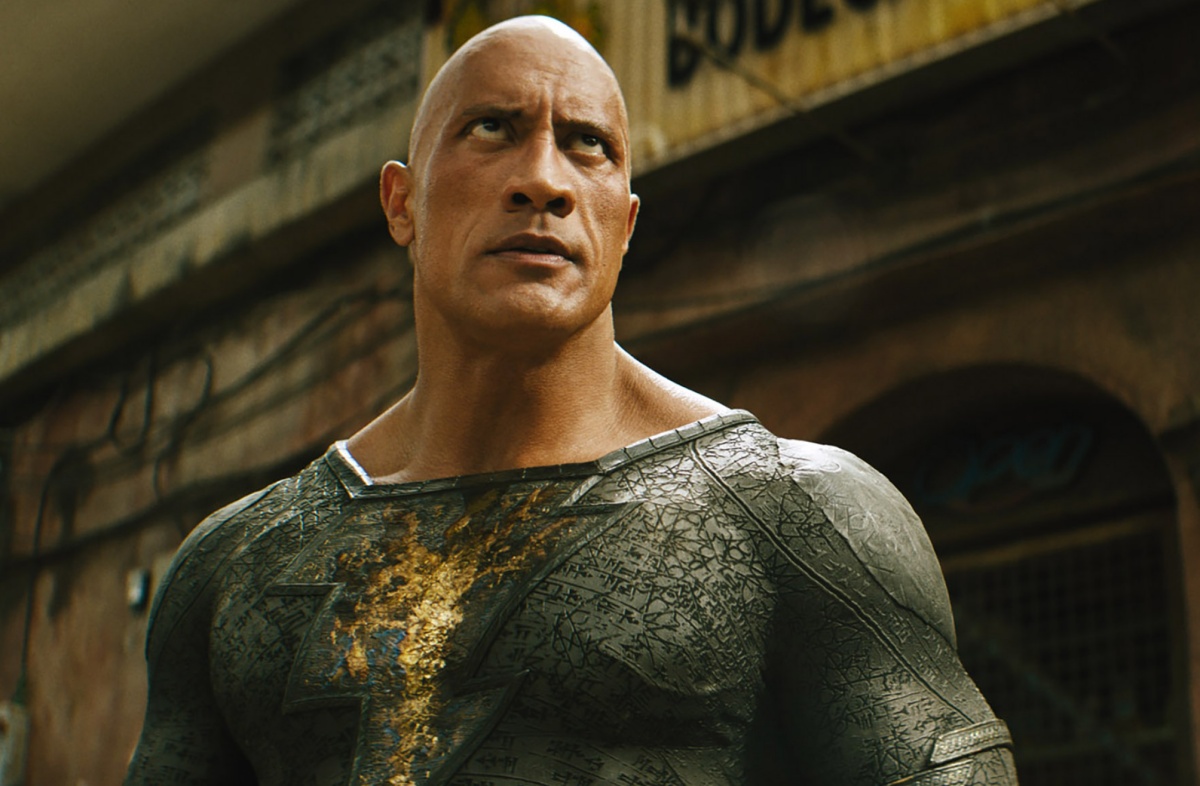With Jaume Collet-Serra’s Black Adam opening to a solid $67 million worldwide, there’s no doubt that audiences are still very much hungry for big-budget DCEU superhero flicks spearheaded by recognizable stars. But despite a sizable box office draw, a curious dilemma that’s haunted many a superhero movie before has popped up yet again—a drastic difference in the Rotten Tomatoes audience and critic scores.
Originally intended to serve as the antagonist to Shazam in Fury of the Gods, Dwayne Johnon’s gargantuan anti-hero Black Adam had enough backstory that DC felt he warranted his own film, which also features the Justice Society of America’s big-screen debut—including the likes of Pierce Brosnan as Doctor Fate, Noah Centineo as Atom Smasher, and Quintessa Swindell as Cyclone.
Despite featuring a set of heroes who aren’t all-too-familiar to broader moviegoing audiences, Black Adam as a film is a project that’s been in the works (and more often than not, development hell) as early as 2006, when Dwayne Johnson was originally approached to play the role of Shazam. Of course, the role ended up going to Zachary Levi, and it would take fifteen years for both Black Adam and Shazam to make it to the big screen. So, after waiting nearly a decade and a half to get his movie off the ground, it’s understandable that Johnson might be disappointed that Black Adam received less than stellar critical reviews—the film currently sits at a lackluster 39% critic rating, averaged from 229 reviews. This rating means that out of those 229 reviewers, only 39% gave the film an overall positive rating.
Though 39% is hardly a passing grade, a below-average score isn’t out of the norm for DCEU superhero films. Suicide Squad, Batman v Superman, and Justice League all currently sit below the 50% rating on Rotten Tomatoes. What is out of the norm, though, is the drastic disparity between the Black Adam critics scores and audience ratings. With over 5,000 user-submitted ratings, Black Adam‘s audience score currently sits at 92%.
For context, the only other DCEU film with an audience score over 90% is Zack Snyder’s Justice League (boasting 94%), a film which was able to secure a streaming release because of significant fan support. But even Snyder’s Justice League didn’t have such a significant disparity in reviews between audience and critics. The Snyder Cut nabbed a 71% critics rating, which makes sense in conjunction with and is much closer to the similarly high audience rating.
It’s not news that audiences generally tend to be kinder to blockbusters than critics are, but the disparity between Black Adam‘s audience and critics scores points to a a deeper phenomenon than critics coming down harsher on films than moviegoers. The last time a superhero film saw such a disparity was 2018’s Venom, which sits at a 30-80 critic vs audience score—drastic, yes, but still a solid 10% less than the Black Adam disparity.
So where is this difference coming from? Why are audiences responding so positively to Black Adam (even moreso than usual) when critics panned it? Even the Black Adam marketing seems to have noticed just how extreme the difference is between critic and fan reactions. The majority of their marketing materials tout the impressive audience Rotten Tomatoes score, taking care to emphasize that the support is coming from fans, not critics:
Regardless of the unsavory critical reception, Dwayne Johnson and the rest of the Black Adam team are more than happy to embrace the unprecedented fan response, with Johnson going so far as to personally thank fans for the film’s lofty Rotten Tomatoes score:
Although the reason Black Adam, of all DC films (the franchise has certainly delivered more divisive titles) as been able to score so well with online audiences remains a mystery, it’s undeniable that the social media response to Black Adam points to a continued thirst for superhero films, even if critics are beginning to sour on the genre’s oversaturation.
(featured image: Warner Bros.)
—The Mary Sue has a strict comment policy that forbids, but is not limited to, personal insults toward anyone, hate speech, and trolling.—
Have a tip we should know? [email protected]
